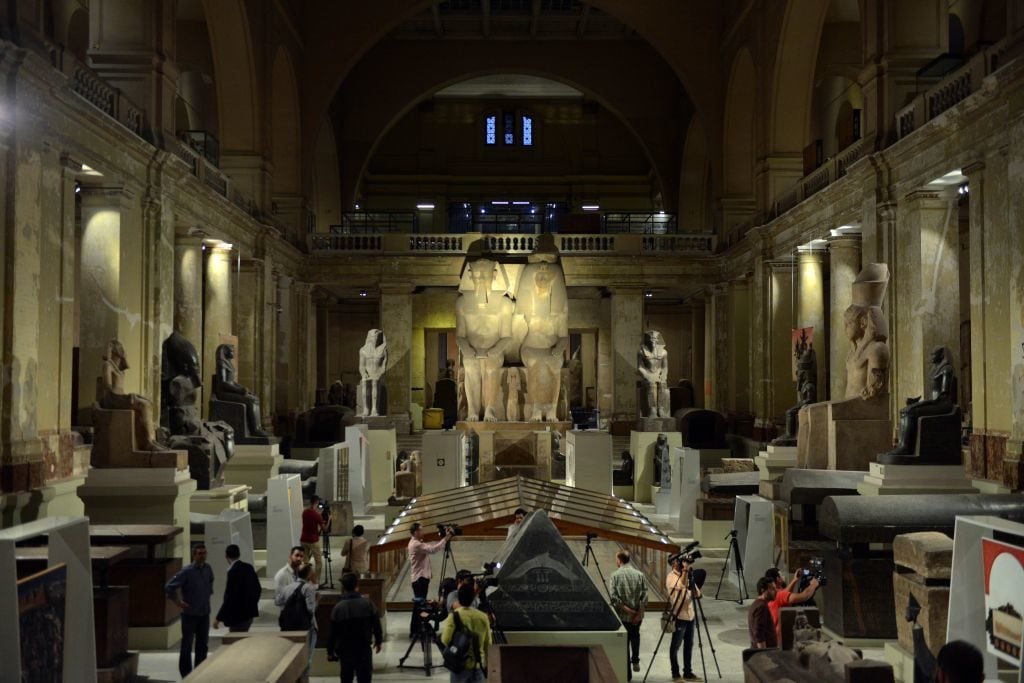Art World
One in Eight Museums Worldwide May Never Reopen, According to the International Council of Museums
A separate UNESCO report indicates that 90 percent of museums worldwide have temporarily closed in recent months.

A separate UNESCO report indicates that 90 percent of museums worldwide have temporarily closed in recent months.

Sarah Cascone

A startling pair of reports from UNESCO and the International Council of Museums (ICOM) suggest that the extended closures forced on many museums around the world in recent months may lead to the permanent closure of as many as one in eight such institutions worldwide.
An astonishing 85,000 institutions—around 90 percent of all museums worldwide—have been forced to close temporarily, according to the UNESCO report. And nearly 13 percent of the 1,600 international museums surveyed by ICOM reported that they would close permanently. Another 19.2 percent said they were uncertain whether they would be able to continue.
Among those that will remain open, there will be fewer resources with which to operate. Nearly 83 percent of museums foresee reducing programming, according to ICOM. And keeping the lights on will force 30 percent of those institutions to make staffing cuts. Already, 20 percent of museum workers have lost their jobs. Only 7.3 percent of staff have continued working on-site during shutdowns.
“We are fully aware of and confident in the tenacity of museum professionals to meet the challenges,” ICOM president Suay Aksoy said in a statement. “However, the museum field cannot survive on its own without the support of the public and private sectors. It is imperative to raise emergency relief funds and to put in place policies to protect professionals and self-employed workers on precarious contracts.”
The museum sector has grown enormously in the past decade. Since 2012, the number of museums worldwide has grown 60 percent, according to UNESCO. But institutions now face a precarious future, regardless of their size, scope, and focus. More than 40 percent of the museums surveyed by ICOM predict they will lose some public funding as a result the weakened international economy. Nearly 43 percent said they would lose private funding.

The renovated Baroque gallery in the Cleveland Museum of Art’s 1916 building. Photo by Erik Drost via Wikimedia Commons.
UNESCO found that museums in Africa and the so-called Small Island Developing States, which make up just 1.5 percent of the world’s institutions, were especially hard hit. While many museums in other parts of the world pivoted to offer online content, only five percent of the institutions in those two regions were able to make the shift. In addition, nearly half the world’s population currently has no internet access, according to the UN.
“It is alarming data that we are giving,” Ernesto Ottone, the assistant director general for culture at UNESCO, told the Associated Press.
The new studies echo the results of a survey from the Network of European Museum Organizations, which found that Europe’s biggest cultural attractions, such as the Stedelijk and Rijksmuseum in Amsterdam, have been losing as much as €2.5 million ($2.75 million) a month.
In the US, a report from Americans for the Arts found that American institutions had already lost a combined $4.5 billion by early April. Earlier this month, a report from SMU DataArts and TRG Arts put projected losses for the nation’s cultural institutions at a total of $6.8 billion year-over-year. A call from the American Alliance of Museums for $4 billion in government aid have gone largely unanswered by Congress, and the organizations predicts that 30 percent of museums in the US may be forced to close permanently.
As museums do reopen, they are being encouraged to follow ICOM safety guidelines that include limiting visitor numbers, using online booking systems, placing markers on gallery floors to illustrate proper social distancing, and keeping interior doors open to minimize the need to disinfect handles.